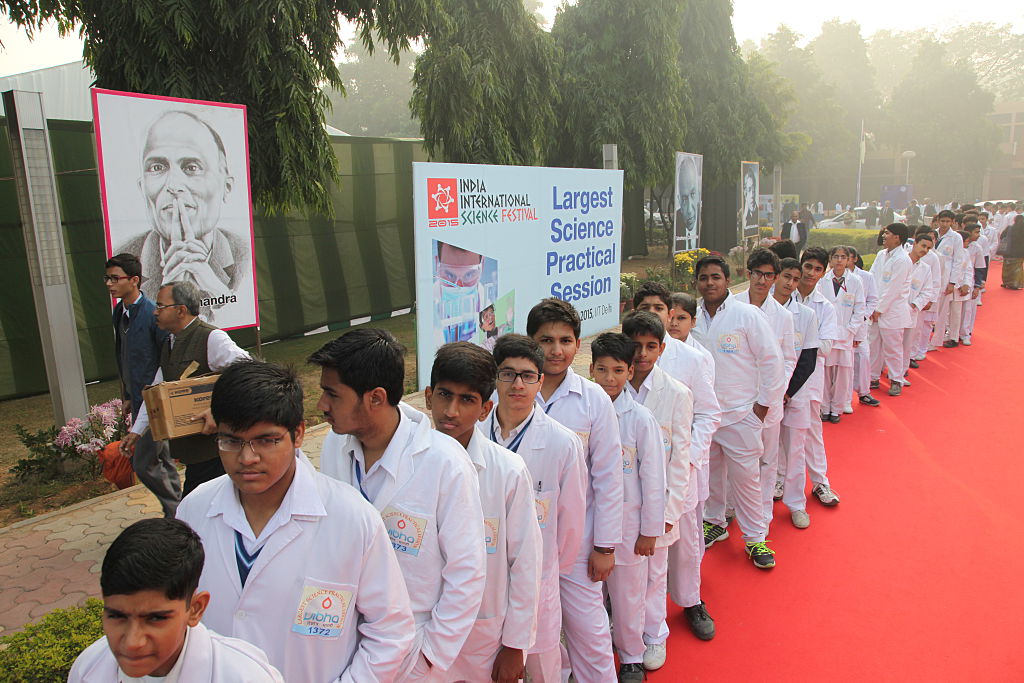
In the digital age, where technology governs nearly every aspect of our lives, a significant challenge looms over Australia—the shortage of critical and cyber technology skills. It poses a significant threat to the economy and has far-reaching implications for both national security and Indo-Pacific stability. The statistics are concerning. In its 2023 report, Towards a National Jobs and Skills Roadmap, Jobs and Skills Australia reveals that nearly 70% of ICT professional occupations in Australia face a shortage. There’s a national shortage in more than a third of all assessed occupations, with tech skills and jobs experiencing particularly acute deficits. The broader reality is that skill shortages in Australia are across the board and something as a nation we have not had to grapple with since the 1960s.
To understand the gravity of the situation, consider the growing demands of Australia’s professional, scientific, and technical services sectors. These fields are projected to grow by 116,900 people by 2028, and by 233,600 by 2033. Yet, alarmingly, only about 7,000 students are graduating each year in Australia with IT degrees. The most significant shortage is centered on software knowledge, a critical competency in the era of digitisation and automation.
An Australian Information Industry Association (AIIA) survey reveals that skill shortages remain the single biggest inhibitor to business growth in Australia. One-half of Australian organisations are outsourcing IT roles offshore due to a lack of local skills, with AI and cybersecurity as the most outsourced skills. This report paints a concerning picture that our education system is underperforming in producing enough graduates with IT skills.
Australia’s national security is also challenged by tech skill shortages. Both government and industry need to recruit thousands of cyber security professional to meet workforce demand. The world has seen the devastating impact of cyber warfare. The Australia India Institute held a defence tech dialogue last year, providing experts a platform to discuss how both countries could significantly benefit from working together through defence technology sharing and supply.
Australia needs tech skills migration because with artificial intelligence and cybersecurity core components of our digital economy and security, Australian organisations are striving to remain competitive whilst the need for skilled professionals has never been greater. The Government’s commitment to the Tech Council of Australia’s target of reaching 1.2 million tech jobs by 2030 is a strong signal that as a nation we must meet this demand. However, achieving this goal necessitates not only the growth of the local talent pool but also access to international sources of skills.
Nearly half of India’s population is under 25 and it has the same number of 17-year-olds as Australia’s entire population. Its burgeoning young pool of tech talent scattered from Bengaluru’s ‘Electronic City’ to Chennai, Mumbai, Hyderbad and Delhi can play a crucial role in addressing Australia’s skills deficit. GitHub estimates that there are 11.4 million software developers in India, and this number is growing steadily. India’s drive to educate and skill up its youth and its recent changes to regulations for international institutions to set up campuses and work with partners gives Australian institutions a mutually beneficial opportunity to address its skills gap.
However, to capitalise on this potential partnership requires effective mechanisms. Existing initiatives, such as the Australia-India Cyber and Critical Technology Partnership (AICCTP), the Mobility Arrangement for Talented Early-professionals (MATES) scheme, and the Mechanism for the Mutual Recognition of Qualifications between Australia and India are significant initiatives that will help lay the foundation for further collaboration between both countries.
The AICCTP, with a $12.7 million budget, recognises the global importance of emerging technologies such as Artificial Intelligence (AI), next generation telecommunications (5G/6G), quantum computing, synthetic biology, blockchain and big data and Internet of Things (IoT). MATES can serve as a powerful catalyst for the exchange of expertise between the two nations, fostering the mobility of skilled professionals, particularly in crucial areas of renewable energy, mining, engineering, and cutting-edge technologies like FinTech and AgriTech.
The recently signed Australia-India Economic Cooperation and Trade Agreement (ECTA), described as, ‘a watershed moment in bilateral relations’, by India’s Prime Minister Narendra Modi, also offers extended post-study work rights in STEM and ICT sectors, a significant advantage for Indian students wanting to study in Australia and the tech businesses in Australia who wish to employ them.
Despite these promising initiatives, successful execution is imperative. The skills shortage issue is a multifaceted one. International students, a potential source of talent, face difficulties securing employment. One in four migrants have reported working in jobs below their skill level. The urgency for a coordinated approach among international students, industry, education providers, and governments cannot be underestimated.
The Parkinson review of the migration system states that ‘Australia is not focused enough on capturing the best and brightest international students’. It says generous temporary work rights, unclear pathways to permanent residence, and variable support to succeed in our labour market lead to uncertainty amongst international students.
The growing tech skills gap in Australia will not be solved overnight and continues to pose significant challenges for businesses, government and our economic growth—and for national security. India’s growing highly skilled tech talent can not only help address Australia’s tech shortages, but through employment and mobility, can help both nations build a closer security pact to help create a safe and secure Indo-Pacific. As two trusted partners who together wish to help shape the peaceful and prosperous region we want to live in, the case for an Australia-India tech skills migration program grows stronger by the day. Existing agreements provide a strong foundation for collaboration, but innovative thinking that can deliver outcomes to meet this critical need in Australian tech sector jobs is urgent. The digital age we all live in demands it.

